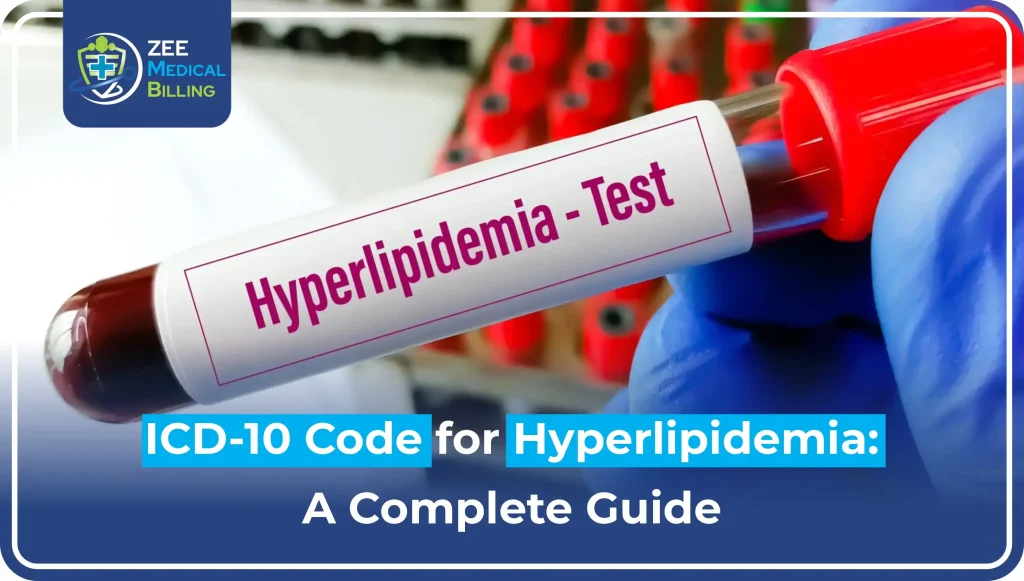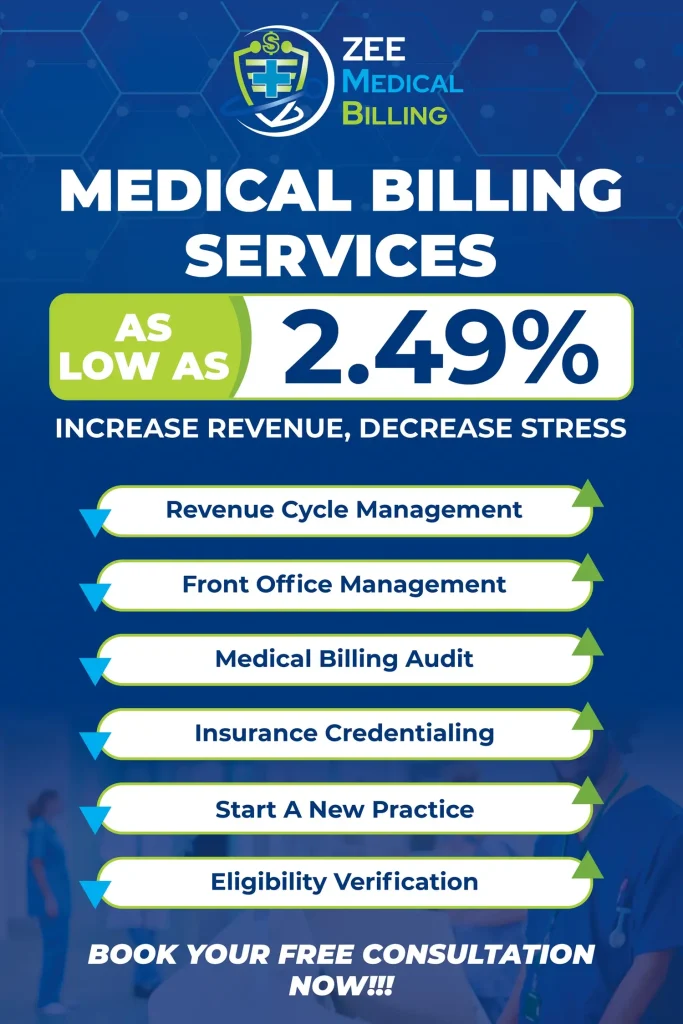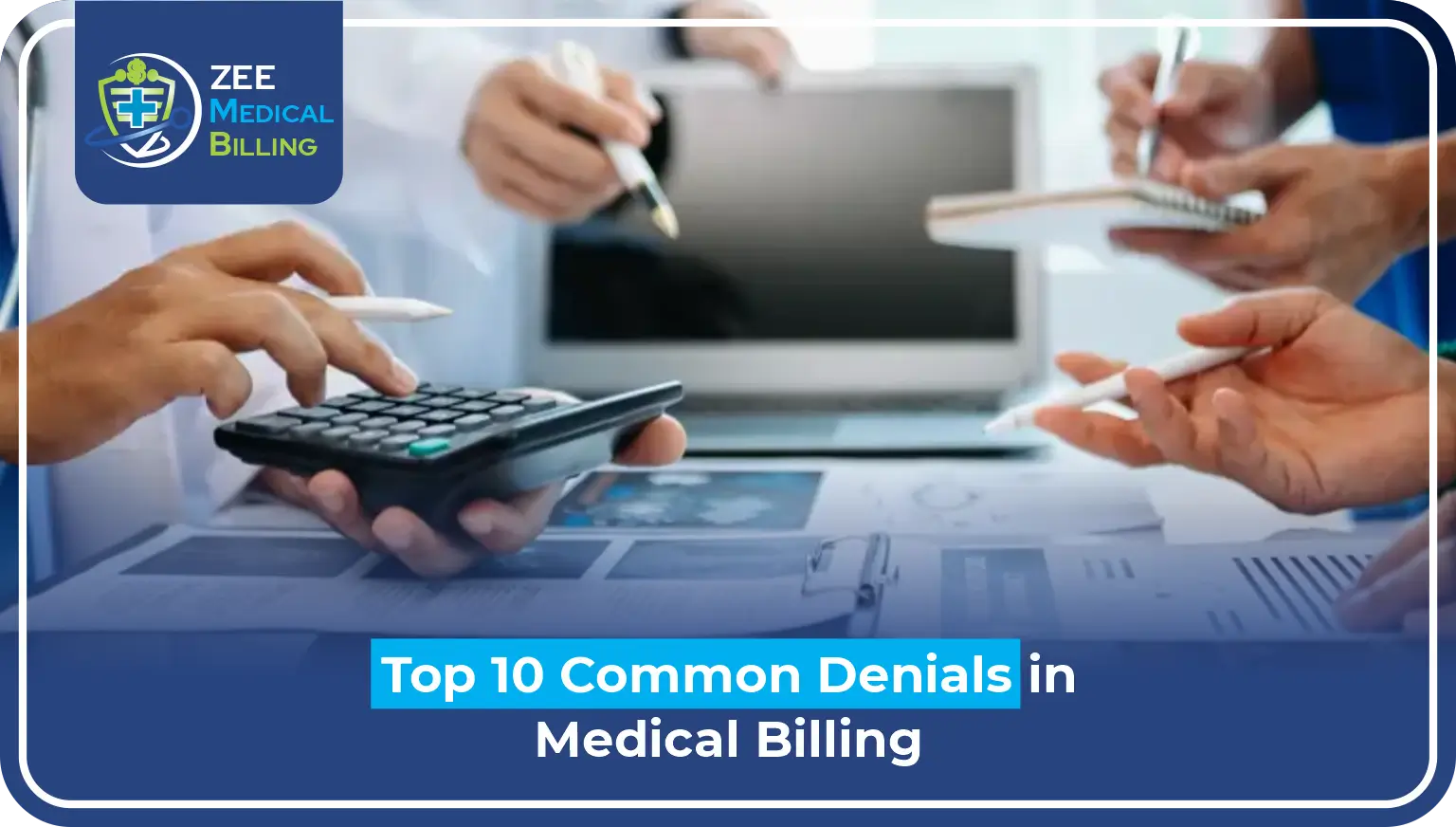Hyperlipidemia is one of the most common metabolic disorders involving elevated lipid levels in the blood. It’s a silent condition that often goes unnoticed until complications arise. Accurate documentation through ICD-10 coding is essential for diagnosis, treatment tracking, billing, and long-term healthcare management.
This guide explores ICD-10 codes related to hyperlipidemia when to use them, and how they support healthcare professionals, coders, and billing teams.
What is Hyperlipidemia?
Hyperlipidemia means an abnormal increase in lipids such as cholesterol and triglycerides. These lipids can deposit in blood vessels, increasing the risk of heart disease, stroke, and atherosclerosis. Hyperlipidemia can be primary (genetic) or secondary (caused by lifestyle or medical conditions like diabetes).
Read More: Complete List of GERD ICD-10 Codes You Need to Know
Common types include:
- Pure hypercholesterolemia: Only high cholesterol
- Pure hyperglyceridemia: Only high triglycerides
- Mixed hyperlipidemia: Both are elevated
- Unspecified hyperlipidemia: No specific classification is provided
Why ICD-10 Codes Matter?
The ICD-10-CM (Clinical Modification) system standardizes disease classification globally. These codes are used by:
- Physicians for diagnosis documentation
- Billers for claim processing
- Researchers for health data tracking
- Public health officials for disease surveillance
Using the correct ICD-10 code improves care coordination and ensures insurance coverage is processed correctly.
Common ICD-10 Codes for Hyperlipidemia
E78.0 – Pure Hypercholesterolemia
Use this when only cholesterol levels are high, not triglycerides.
- Often linked to familial hypercholesterolemia
- Relevant when LDL (bad cholesterol) is elevated
E78.1 – Pure Hyperglyceridemia
This code is used when only triglyceride levels are elevated.
- Often associated with conditions like pancreatitis or obesity
- Common in patients with poor dietary habits or diabetes
E78.2 – Mixed Hyperlipidemia
Used when both cholesterol and triglycerides are elevated.
- Also known as combined hyperlipidemia
- Frequently genetic or lifestyle-induced
Keywords matched: ICD 10 code for mixed hyperlipidemia, ICD-10 code for mixed hyperlipidemia
E78.4 – Other Hyperlipidemia
When the lipid abnormality doesn’t fall under the usual types.
- It could be a rare lipid disorder
- Requires additional clinical documentation
E78.5 – Hyperlipidemia, Unspecified
Use this code when lab results indicate abnormal lipid levels but specifics aren’t documented.
- Temporary placeholder code
- It should be updated once further testing clarifies the lipid type
Keywords matched: ICD 10 code for hyperlipidemia, ICD 10 code for hyperlipidemia unspecified, ICD 10 code for hyperlipidemia.
Other Relevant Codes
Some codes are used to describe personal or family history, which helps with risk assessment.
Z83.42 – Family History of Hyperlipidemia
Indicates a genetic predisposition. Important for early screening and preventive care.
Keywords matched: ICD 10 code for family history of hyperlipidemia
Z86.39 – Personal History of Other Circulatory System Diseases
Used when hyperlipidemia is no longer active but part of the patient’s history.
Keywords matched: ICD 10 code for history of hyperlipidemia
How to Assign the Correct ICD-10 Code?
To ensure accurate coding, follow these steps:
- Review Laboratory Tests
- Identify whether triglycerides, LDL, HDL, or total cholesterol are elevated.
- Assess Clinical Diagnosis
- Ask whether the condition is primary or secondary to another disease.
- Document Medication and Risk Factors
- Is the patient on statins or lipid-lowering agents?
- Are there comorbidities like diabetes or hypertension?
- Use the Most Specific Code Possible
- Avoid general codes when labs clearly indicate a specific type.
- Include Historical or Family Factors
- This supports comprehensive documentation and helps with preventative planning.
Hyperlipidemia and Insurance Claims
Insurance companies rely heavily on ICD-10 coding for claim approval. Common issues that can lead to claim denial include:
- Using unspecified codes when detailed data is available
- Lack of supporting documentation
- Inconsistent lab results vs. coded condition
Using accurate and specific ICD-10 codes like E78.2 (mixed) instead of E78.5 (unspecified) improves claim success rates and speeds up reimbursements.
Read More: Skin Tag ICD-10 Codes and CPT Guide for Easy Billing
Impacts of Coding on Healthcare Data
ICD-10 codes don’t just help with billing—they shape public health policy. The data allows governments:
- Monitor disease trends
- Allocate research funds
- Evaluate healthcare outcomes
- Build early intervention strategies
Healthcare systems rely on this structured data to address long-term chronic diseases like hyperlipidemia.
Best Practices for Healthcare Providers and Billers
- Always double-check lab results before assigning a code
- Avoid overuse of E78.5 (unspecified)
- Use Z-codes like Z83.42 for complete family history
- Align documentation with insurance payer guidelines
- Train staff on ICD-10 updates and interpretation
FAQs
1. What is the ICD-10 code for hyperlipidemia?
The most general code is E78.5 – Hyperlipidemia, unspecified.
2. What does mixed hyperlipidemia mean?
It refers to elevated levels of both cholesterol and triglycerides and is coded as E78.2.
3. Can hyperlipidemia be hereditary?
Yes, and the ICD-10 code for a family history is Z83.42.
4. How often should ICD-10 codes be reviewed?
They should be updated during each visit or if lab results or health conditions change.
5. Why is specific coding important?
It helps improve care, ensures accurate billing, and supports health data reporting.
Final Thoughts
Accurate ICD-10 coding for hyperlipidemia improves healthcare documentation, billing, and patient outcomes. With various codes like E78.0, E78.2, and Z83.42, it’s important to choose the one that best fits the clinical situation. Specific coding supports early diagnosis, better tracking, and better care for patients with lipid disorders.
Need Expert Medical Billing Services?
Zee Medical Billing provides professional billing solutions tailored to healthcare providers across the United States. In addition to offering top-tier support from our main office, we proudly serve clients in Illinois, Indiana, California, Kentucky, New York, Washington, Georgia, Alabama, South Carolina, Texas, Pennsylvania, Ohio, New Hampshire, Nevada, Massachusetts, Hawaii, Arizona, and Colorado! Whether you’re looking to streamline your revenue cycle or improve claims accuracy, you can reach out to us to learn more about how we can support your practice.









